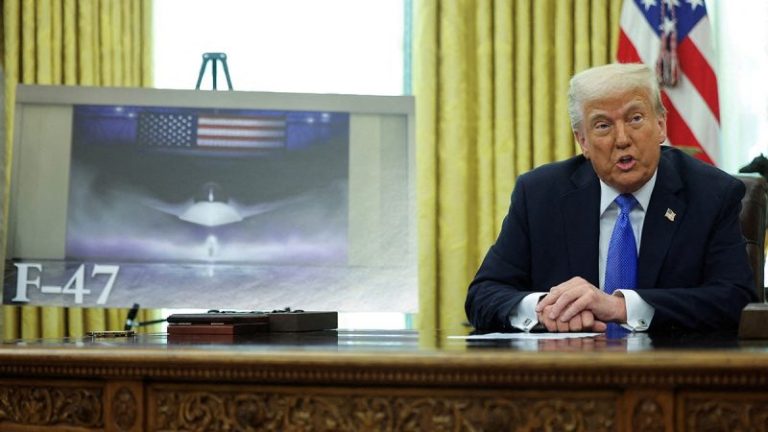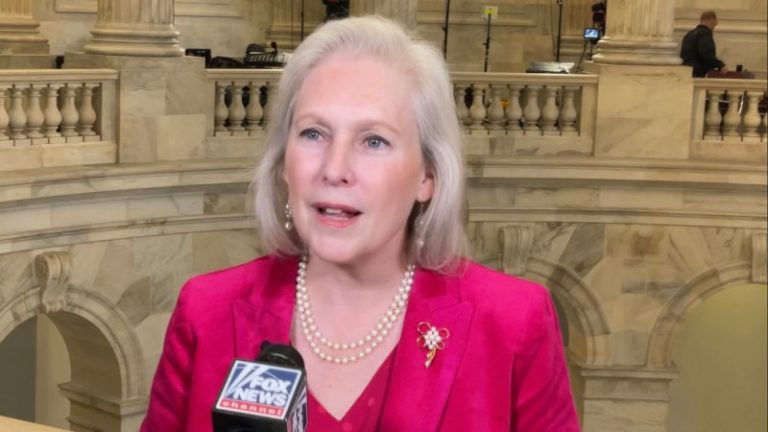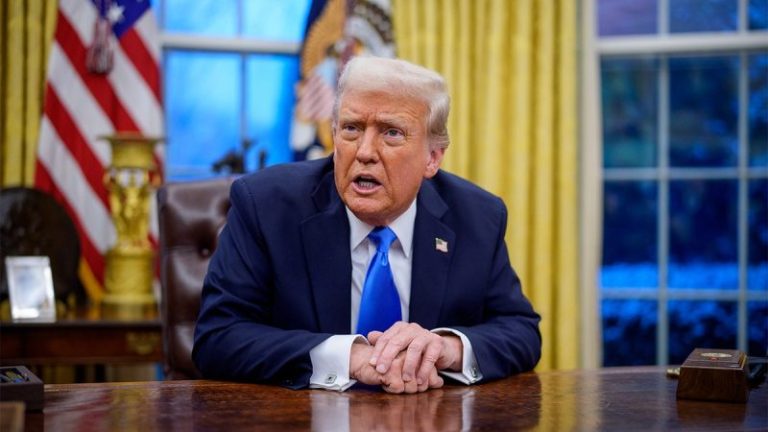: President Donald Trump is considering lifting sanctions on and resuming the sale of fighter jets to Turkey after a conversation with President Recep Tayyip Erdogan.
Trump expressed an intent to help finalize the sale of F-16 fighter jets to Turkey and is open to the idea of selling Turkey its true prized goal, F-35 jets, if the two sides can come to an agreement that renders Turkey’s Russian S-400 system inoperable, two sources confirmed to Fox News Digital.
That agreement could look like partially disassembling the machinery or moving it to a U.S.-controlled base in Turkey.
Congress approved the $23 billion sale of 40 F-16s and modernization kits for 79 in its current fleet to Turkey last year, but there are ongoing negotiations between Turkey’s defense ministry and Lockheed Martin, which builds the jet.
Trump’s team has asked for legal and technical analysis of how it could avoid finding Turkey in violation of Countering America’s Adversaries Through Sanctions Act (CAATSA) sanctions, according to one source familiar with the request.
The State Department and National Security Council could not be reached for comment.
The U.S. agreed to extend a waiver allowing Turkey to buy Russian natural gas until May, Bloomberg reported on Thursday.
Trump and Erdogan spoke by phone on Sunday, and the Turkish government is looking to firm up plans to bring Erdogan to the U.S. to visit with Trump in the near future.
The Turkish embassy pointed to a readout of the call from Erdogan’s office which said the president had expressed to Trump, ‘in order to develop cooperation between the two countries in the field of defense industry, it is necessary to end CAATSA sanctions, finalize the F-16 procurement process and finalize Türkiye’s re-participation in the F-35 program.’
Erdogan asked the U.S. to lift sanctions on Syria, where a new governing force, HTS, overthrew Bashar al-Assad with Turkish backing. The U.S. side did not provide a readout of the call.
Turkey was kicked out of the F-35 program following its purchase of a Russian S-400 mobile missile-to-air system due to spying concerns associated with having a Kremlin-operated system so close to a high-level U.S. technology like the F-35.
‘The F-35 cannot coexist with a Russian intelligence collection platform that will be used to learn about its advanced capabilities,’ the White House said in 2019, adding that the purchase would have ‘detrimental impacts’ on Turkey’s participation in NATO.
Ankara, Turkey’s capital, had brokered the $2.5 billion deal with Russia for the S400s in 2017, despite U.S. warnings that there would be political and economic consequences. In an effort to deter Turkey, the U.S. offered to sell them the Patriot system, but Ankara wanted the system’s sensitive missile technology along with it, and the U.S. declined.
The U.S. considerations come after the United Kingdom offered a price proposal to Turkey to purchase 40 of its Eurofighter Typhoon fighter jets last week.
A move to sell Turkey F-35s would prove controversial, and prompt concern from U.S. allies like Israel, where Turkey cut off all relations due to the Gaza war last year, and Greece due to disputes over Cyprus and the surrounding waters.
Experts describe the F-35 as a ‘status symbol.’ ‘The F-35 club is really for trusted allies,’ said Jonathan Schanzer, executive director at the Foundation for Defense of Democracies.
‘This is a Turkey that supports the Houthis, which President Trump is bombing and supports Hamas and supports Hezbollah,’ said Endy Zemenides, executive director of the Hellenic American Leadership Council. ‘We know that they don’t want to be a customer, they want to be a competitor in the arms market.’
However, isolating Turkey, which has the second-largest standing military after the U.S. in NATO, could push them to go to Russia and China for weapons supplies.
‘Trump’s about making a business deal here, right? We don’t need Turkey with nearly one million soldiers on the other side and leaning more towards Russia and China, right?’ said Jonathan Bass, Argent LNG CEO and international trade expert.
‘Turkey is an unresolved thorn in the side of the NATO alliance,’ said Schanzer, ‘It certainly seems to be a priority right now for the Trump administration to try to bring them back into the fold.’
However, he added, ‘There’s the democracy deficit and the autocratic tendencies of Erdogan. All of these things are creating a very cloudy picture for U.S. engagement. So it’s buyer beware.’
‘Turkey is a major economy. We need them to come down on the right side of the fence. We need them from a supply chain standpoint,’ countered Bass.
He added that the U.S. needs to partner with Turkey on mining for rare earths minerals. ‘Turkey has a lot more mining infrastructure,’ he said. ‘They can help us with mining operations in Africa. We don’t have the people willing to do that.’
‘If you don’t give Erdogan a seat at the table, he’s going to make his own table,’ Bass warned.
‘He wants to be respected as he should. He’s got 80 million people that he represents. But we need to give him clear lines of engagement.’
This post appeared first on FOX NEWS










